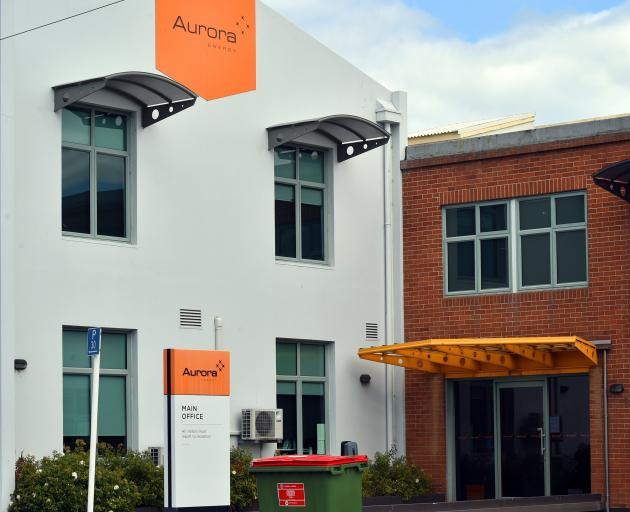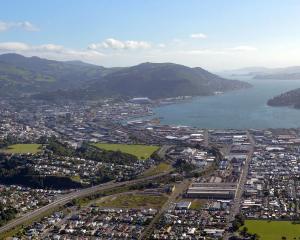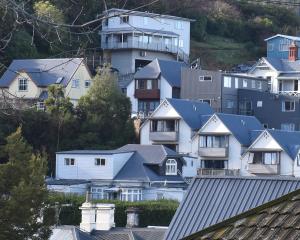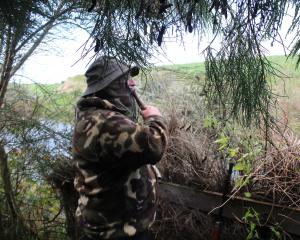
Proposed Aurora sale means what for prices?
Will the sale of Aurora Energy lead to higher power prices?
Is Aurora's debt not because it was used as a cash cow to fund the stadium white elephant?
But weneed to distinguish between bad and worthwhile debt. Clearly debt can be useful and valuable. How many of us buy our first house without a mortgage?
For local government moreover, it spreads costs over time and generations, and is usually cheaper than private debt which has up to three times the interest rate.
If this is to stop rates going up, then it is a short-term and temporary fix only. The real problem for local bodies is that they have lots of costs from central government and only rates/fees income. In all other advanced nations local bodies get tax income as well.
Should we sell a strategic asset we all depend on, like Aurora? The lessons from previous sales of assets leads are increases in consumer prices.
For electricity the big gentailers (generation and retailing) have greatly increased power prices since partial privatisation and mothballed urgently needed, already consented, solar and wind power farms because extra capacity lessens their profits.
If private enterprise is willing to pay enough for Aurora to get rid of its debt and provide a big surplus investment fund, someone is going to have to carry the can. Guess who?
Pat Shannon
Caversham
Keep the crown jewels
By world standards we are a small country, but in many areas, we punch above our weight. However, what we do seem to continually lack are governments and councils with long-term visions for the future, developing, expanding and supporting our diverse economy.
Currently we seem to be losing control of a variety of New Zealand industries (totally or partially), many of which have a big input on our economy, and could be termed as some of our "crown jewels".
On a local basis, here we go again, with the DCC considering disposing of Aurora, our electricity lines company.
But whatever happens, Dunedin ratepayers will be either paying the council increased fees to maintain this company, and keep it in New Zealand ownership, or sell it to an unknown entity or overseas interests. Please, please retain ownership of one of our crown jewels.
Mike Rawling
Abbotsford
Who met whom
I am writing in response to "Mixed Reaction to Banner" (ODT 8.4.24). In particular, I take issue with Port Otago's Chief Executive, Kevin Winder's, comment that Climate Liberation Aotearoa, who organised the protest, are "just anti-business'’.
This national group is not "anti-business" at all. It is clearly pro-sustainable business.
The current cruise ship industry isn't sustainable due to its massive carbon footprint. These giant floating hotels also pollute our air, suck up our water, interfere with our local transport and are a worrying health risk if unscreened passengers bring new strains of Covid to New Zealand.
Mr Winders also said he met the leaders of Climate Liberation Aotearoa. In fact he met two local supporters.
Bruce Mahalski
Dunedin
Border control
Jenny McNamara (ODT 8.4.24) has forgotten or perhaps did not know that soon after Hamas was elected they abandoned elections, thus the people residing in Palestine have not had a democratic voice in the last 19 years. Re her comments on Israel’s "control" I would ask this: Are countries currently allowed to control their own borders?
Susan Easterbrook
Dunedin
Survey results and a salutary lesson for media
It should be a salutary lesson for all media to digest the findings of the AUT survey of trust of news media, but I’m not at all convinced that many media will accept the findings.
While the Otago Daily Times can be proud that it rated better than the rest in the survey your editorial notes that it doesn’t achieve perfection.
Your editorial states that there is some truth in the argument that journalists tend to be left-leaning. I’d suggest that there is a great deal of truth in this view and the worst offenders are those reporters within TVNZ and RNZ whose personal beliefs – or those of their editors – are no longer concealed.
There are two important factors in the future of media. One is the ratings. If people choose not to read, watch or listen to news because they don’t trust it, then the second factor comes into play, and that is advertising.
There is no point in an advertiser publishing their wares in a programme or publication that no-one is watching or reading.
If media can’t or won’t recognise that they need to produce news that is actually professional and neutral then they will fail. It is really as simple as that.
Russell Garbutt
Clyde
[Abridged — length. Ed]
Insipid change
I strongly support the letters (ODT (9.4.24) re the change of the coat of arms of the University of Otago. Why change a clear and dignified coat of arms recognised nationally and internationally? The new logo is insipid and has none of the gravitas of the coat of arms it's replacing. Include the name in te reo by all means, but why change for change's sake?
Alison Runyard
Dunedin
Engineering: a satisfying, rewarding job
I congratulate SOREC and Business South for the excellent supplement in the ODT (3.4.24).
Engineering has the potential to increase economic development for New Zealand. One of the impediments in achieving this has been a lack of information about the number of rewarding employment opportunities, employers and range of careers available.
Engineering is a generic term used by many that unfortunately dissuades many from entering the large number of disciplines that exist because of images of overalls and grease. The International Labour Organisation recommends a ratio of one professional engineer supports five engineering technicians and 25 tradespeople not necessarily employed by the same organisation.
A professional engineer identifies and analyses need, designs concepts, mathematically models, manages consents, legal, compliance and tender documents, and has overall responsibility for projects. A professional engineer studies a BE Honours or higher degree.
Satisfying and rewarding career are available. Universities, polytechnics and trade training institutes offer education but school leavers will require appropriate numeracy and literacy skills.
Further similar ODT supplements for other career disciplines could be sponsored by employers organisers and Business South then compiled in a website to aid students, parents and teacher's to appreciate what careers are available.
Steve Tilleyshort, retired engineer
Karitane
[Abridged — length. Ed]
Money and needs
$30 million to upgrade Premier House and $33m more for refurbishment. Of course we have the money. Not enough, however, to fund the needs of the disability community.
Where are our priorities? What are they thinking?
J. Park
Wakari
Address Letters to the Editor to: Otago Daily Times, PO Box 517, 52-56 Lower Stuart St, Dunedin. Email: editor@odt.co.nz












